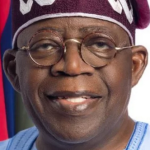The federal government, which is currently battling with low revenue and mounting economic crisis may be spending N27.47bn annually as remuneration package on 109 Senators, THE WHISTLER can report….READ FULL ARTICLE...READ THE FULL ARTICLE HERE ▶▶
The amount is 1,861 per cent higher than the Revenue Mobilization Allocation and Fiscal Commission (RMFAC) approved remuneration for the 109 members of the upper Chamber.
The figure is based on the revelation by the Senator representing Kano South, Sumaila Kawu, that he earns over N21m monthly as take-home package.
The chairman of the Revenue Mobilisation, Allocation and Fiscal Commission, Mohammed Shehu, had revealed that each of the 109 senators in the red chamber receives a total of N1.06m in salary and allowances per month.
Shehu also spoke after former President Olusegun Obasanjo tackled National Assembly members on their bogus allowances.
Speaking in Abeokuta, Ogun State Capital while receiving House of Representatives members led by Ikenga UgoChinyere, Obasanjo had said, “In your case, with all due respect, you’re not supposed to fix your salaries.
“But you decide what you pay yourself, the allowances that you give yourselves (including) newspaper allowances. You give yourselves all sorts of things, and you know it is not right. It is immoral, (yet) you are doing it, the Senate is doing it, and you are beating your chests about it. In some cases, the executive gives you what you’re not entitled to. You all got N200m (each).”
But Kawu, while speaking in an interview with the BBC Hausa Service, said the official pay of N1m fixed by the RMAFC drops to around N600,000 after deductions but other allowances take their total pay to N21 million per month.
He said, “The amount of salary received per month is less than N1 million. If there are cuts, it comes back to about N600,000. In the senate, each senator is given N21m every month as the cost of running his office.”
An analysis conducted by THE WHISTLER on the N21m take-home package shows that the Senator’s annual take-home is N252m per member of the Red Chamber.
This implies that the federal government spends N2.29bn on the 109 senators every month and a total of N27.47bn every year.
The remuneration is in contrast with the N1.06m salary and allowances per month approved by RMFAC.
Based on RMFAC remuneration, each lawmaker should earn N12.72m in 12 months with a total expenditure of N1.4bn annually for all senators.
According to RMFAC documents, a Senator’s monthly salary and allowances are broken down as: basic salary of N168,866:70; motor vehicle fueling and maintenance allowance, N126,650:00; and personal assistant, N42,216:66.
There also Domestic staff, N126,650:00; entertainment, N50,660:00; utilities, N50,660:00; newspapers/periodicals, N25,330:00; wardrobe, N42,216,66:00; house maintenance, N8,443.33:00; and constituency allowance, N422,166:66.
In comparison, the N21m earned by a senator is 1,881 per cent higher than the N1.06m RFMAC official approval.
This implies that the government spends an extra N19.94m monthly on a senator and an additional N239.28m on each senator annually when compared to the N12.72m approved by RMFAC for a senator per year.
By implication, the remuneration of the 109 senators cost the government a total of N26.07bn extra to meet up with the N27.47bn arbitrary payment to senators as against the N1.4bn every year.
The amount is being spent on the lawmakers at a time when the cost of government has said to be high and the federal government is battling low revenues.
Data showed that for the period January to April this year, revenues underperformed by 56.13 per cent when compared to projections.
Meanwhile, public debt grew from N97.34tn in the fourth quarter of 2023 to N121.67tn in the first quarter of 2024.
Reacting to the high remuneration package of the Senators, the Nigeria Labour Congress expressed dissatisfaction with the N21m, saying this is not acceptable at a time when Nigerians are being asked to make sacrifices.
The Head of Information NLC, Benson Upah told THE WHISTLER that the amount was high considering what workers are currently earning in the country.
Upah said, “It is unfair if senator earnings are huge while the Nigerian worker depend on hope. Some social inequality must be addressed”.
When inquired if the N70,000 minimum wage settled for by Organised Labour was the best offer, given that a senator goes home with the pay of 300 workers monthly, Upah replied THE WHISTLER saying, “N70,000 was not what we started with. We started with N615,000 and we broke it down, but government counter offers were not broken down. The reason for that was obvious, the government could not justify what it was counter-offering.
“What they counter-offered was hideously miserable. On accepting the N70,000 we decided to cut a deal and walk away. Because when you do not cut a deal, you walk away with nothing. But when you do, you can walk away with something and tomorrow you could come back to continue with the struggle.
“We decided to cut a deal when we found out it was necessary. But it was not just the N70,000 we took along with us, rather the fact that we could now start discussing a new minimum wage in two years because the circle has been reduced from five to three years, given we are already in use of a year”.
Some economic experts who also spoke on the remunerations faulted the disparity between the earnings and the high levels of poverty in the country.
President of the New Dimension Shareholders Association (NDSA), Mr Patrick Ajudua reacting to the development in an exclusive chat with THE WHISTLER expressed deep concern over the high salaries of public officeholders in the context of widespread poverty in the country.
Ajudua described the situation as “very unfortunate,” highlighting the stark contrast between the earnings of political leaders and the financial struggles faced by ordinary citizens.
“In an era marked by an unpardonable high level of poverty, it is disheartening to learn that senators could be earning such exorbitant amounts,” he said.
The economist further criticized the disparity between the senators’ earnings and the recently approved minimum wage of N70,000, which he argues is insufficient to cover basic necessities.
“The minimum wage, which hasn’t been fully implemented, isn’t enough to buy a bag of rice. This raises questions about the commitment of our political leaders to the welfare and social development of their citizens,” Ajudua remarked.
He called for immediate reforms to address these issues, suggesting that a more equitable approach to governance is necessary.
“For the people to truly feel the impact of governance, we need to ensure a living wage for all workers, reduce the cost of governance by cutting down on allowances for public officeholders, and consider making legislative duties a part-time commitment,” he proposed.
The Managing Director of Hicap Securities Limited, Mr. David Adonri, expressed doubt over the legality of such earnings, suggesting that they might breach existing regulations regarding lawmakers’ salaries.
“To the best of my knowledge, I don’t think the N21m monthly earnings for the lawmakers are legally supported. This implies that they may be violating the regulations stipulating what they can earn,” he remarked.
Adonri emphasized the potential negative impact of these earnings on Nigeria’s budget, noting that such high salaries contribute significantly to the government’s recurrent expenditure.
“This practice will escalate the cost of recurrent expenditure. We are unaware of what the principal officers of the executive arm earn, but if you add those earnings together, it will inflate the government’s recurrent expenditure, leaving next to nothing for capital expenditure,” he explained….READ FULL ARTICLE



